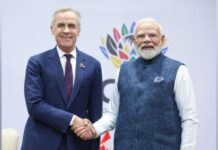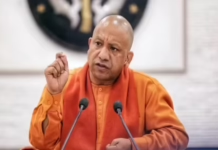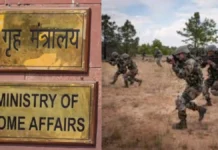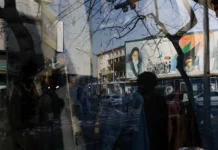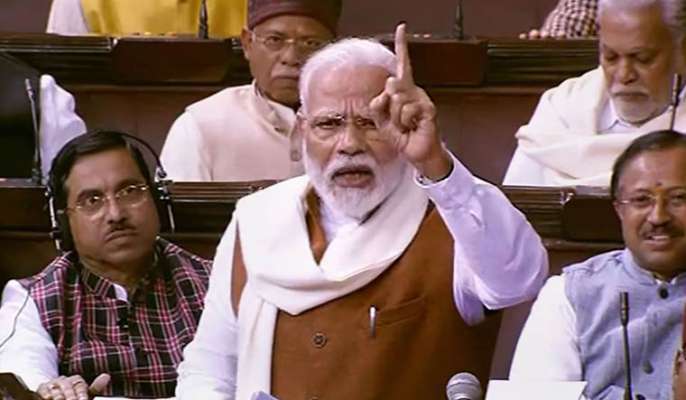 NEW DELHI: Prime Minister Narendra Modi on Thursday launched a strong defence of NPR saying the country’s population register was being updated with demographic information for better targeting of government’s welfare schemes.
NEW DELHI: Prime Minister Narendra Modi on Thursday launched a strong defence of NPR saying the country’s population register was being updated with demographic information for better targeting of government’s welfare schemes.
He accused Opposition parties such as the Congress of misleading people on the National Population Register (NPR) for their “narrow vote bank politics”.
Replying to a 13-hour discussion in Rajya Sabha on a motion thanking the President for his address to the joint sitting of both Houses of Parliament at the start of the budget session, he said the NPR was first done in 2010 and was later updated in 2015 by adding photographs and some biometric information.
These, he said, help deliver government schemes to their intended beneficiaries.
The NPR is a list of “usual residents” of the country. In 2010, the data for NPR was collected along with the house-listing phase of the Census of India 2011. The data was updated in 2015 by conducting a door-to-door survey.
Currently, it has been decided to update the NPR along with the house-listing phase of Census 2021 during April to September 2020 in all the states/union territories except Assam.
Most of the opposition parties see the NPR as a prelude to the contentious National Register of Citizens (NRC), which has been opposed by even NDA allies like the JD(U). The NPR questionnaire asked details like the birthplace of parents.
Modi, however, said all states had approved of NPR but some have now suddenly done a u-turn to oppose it for political purposes.
He went on to term the additional information being sought in NPR as “small changes” done for administrative purposes. “People should not be spreading lies about it,” he said.
The topics covered are required for development works as the migration from one part of the country to other has risen and has to be recorded so as to better implement government schemes such as language schools.
“Why are you lying and making a fool out of people? Your NPR record is with us,” he told the Opposition, adding that the then Home Minister in the UPA government had promoted NPR and urged media to create awareness about it.
NPR was implemented in 2010 and biometric data was collected in 2011.
“By 2014, when you were out of power, the photo data of crores of people were collected. The work of NPR was on. NPR record which you had prepared was updated in 2015. Your record was used to reach out to beneficiaries left out of welfare schemes like Pradhan Mantri Awas Yojana and Direct Benefit Transfer,” he said. “Today, you are opposing and stopping people from taking benefits of such schemes.”
He said census and NPR are “usual administrative” process which has been carried out previously as well but have suddenly become contentious now.
“Your actions are against the poor,” he said. “Based on the 2020 census, we want to update NPR so that scheme can reach out to poor. You are creating hurdles, ignoring its benefits to the poor.”
Modi charged the Opposition with creating a political narrative based on their vote bank politics. “When it comes to appeasement, you will choose the path of division instead of growth.”
“Any party may gain or lose with opportunistic politics, but this will definitely affect the country and create an atmosphere of distrust. So I urge you all to tell the truth to people,” he said.
Questions asked in the NPR are purely governance-related, he said citing the example of asking citizens of the language spoken by them and their parents are deeply linked to the schools that need to be set up in that particular area.
“Don’t try to mislead people,” he said, asking Opposition parties not to politicise the issue for narrow political gains.
“They are opposing (NPR) for narrow and frivolous political narrative. This is anti-poor,” he said, adding his government had made productive use of the data collected by previous NPR to give benefits of the schemes to the poor.
“We have the record of your NPR, no citizen was persecuted based on that record of NPR,” he said, citing the statement of the Home Minister of the Congress-led UPA appealing to citizens to enrol themselves in the exercise.
On the opposition to the new citizenship amendment law, the Prime Minister quoted statements by stalwarts like Lal Bhadur Shastri, Ram Manohar Loshi and B R Ambedkar as well as the November 25, 1947 resolution of the Congress Working Committee to say that they wanted minorities persecuted in Pakistan to be given citizenship.
“Were our nation builders also communal?” he asked.
Modi said it was unfortunate that for their vote bank politics, the Congress party has forgotten the stalwarts who built the nation.
“On 25 Nov 1947, the Congress Working Committee had passed a resolution. It says: Congress is further bound to afford full protection to all those non-Muslims from Pakistan who have crossed the border and come to India or may do so to save their life and honour.”
“I don’t think Congress was communal in 1947 and has turned secular suddenly. You could have written all communities coming from Pakistan. Why did you use the term ‘Non-Muslims’?” he said. Will Congress also label Shastri as “communal”, he asked.
Modi said the citizenship law was a sensitive issue and correct information should be given to people. “We should desist from the tendency to misguide and misinform the country,” he added. PTI

